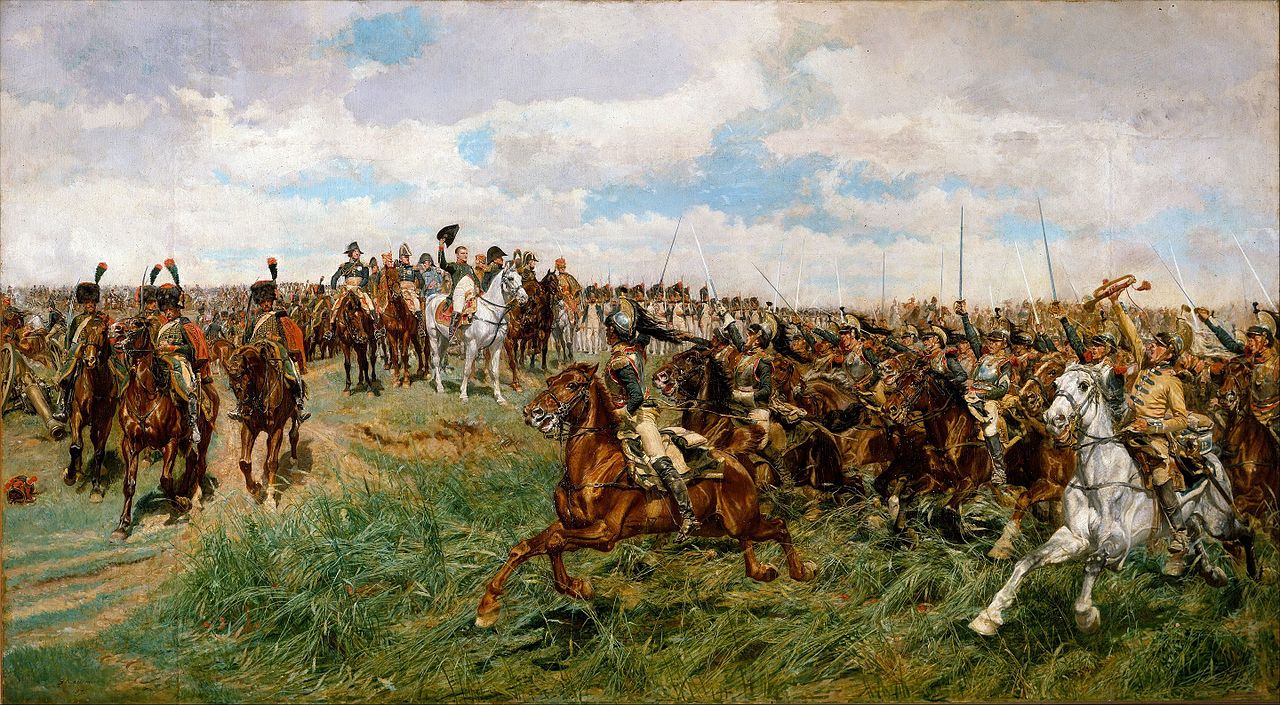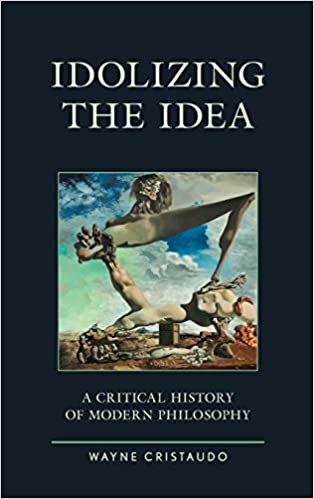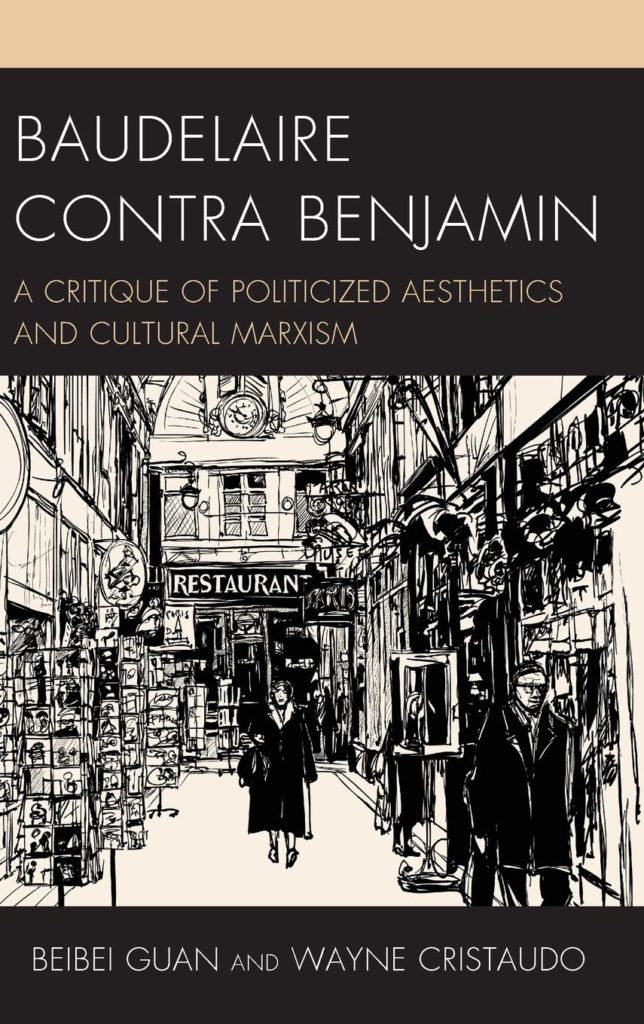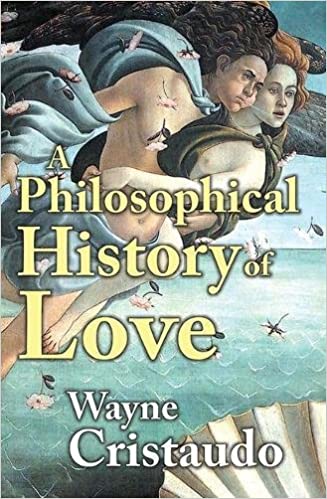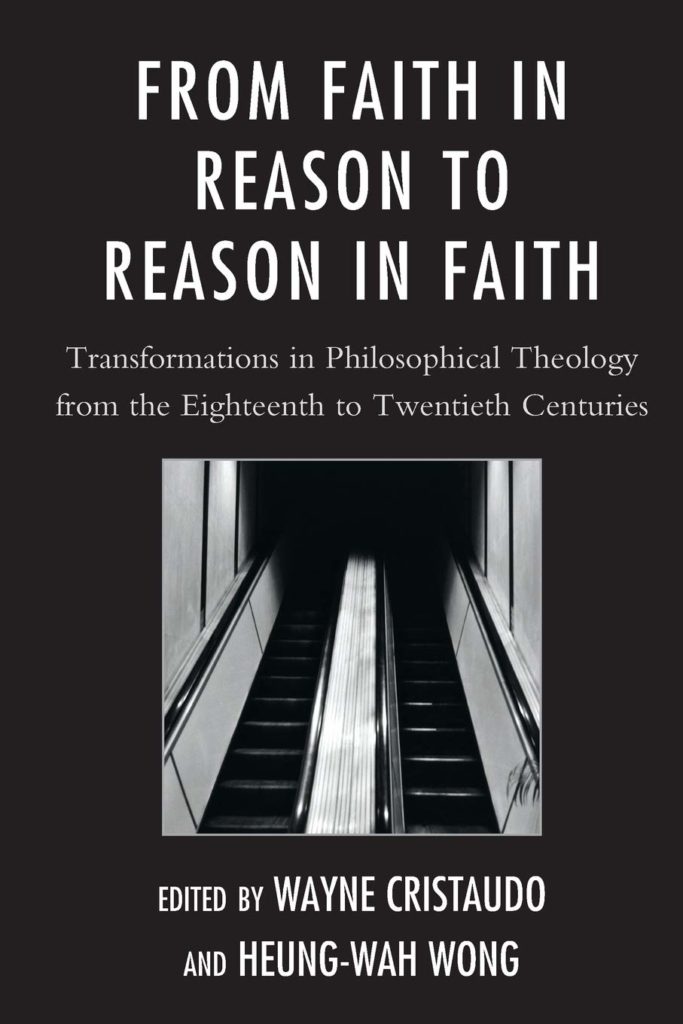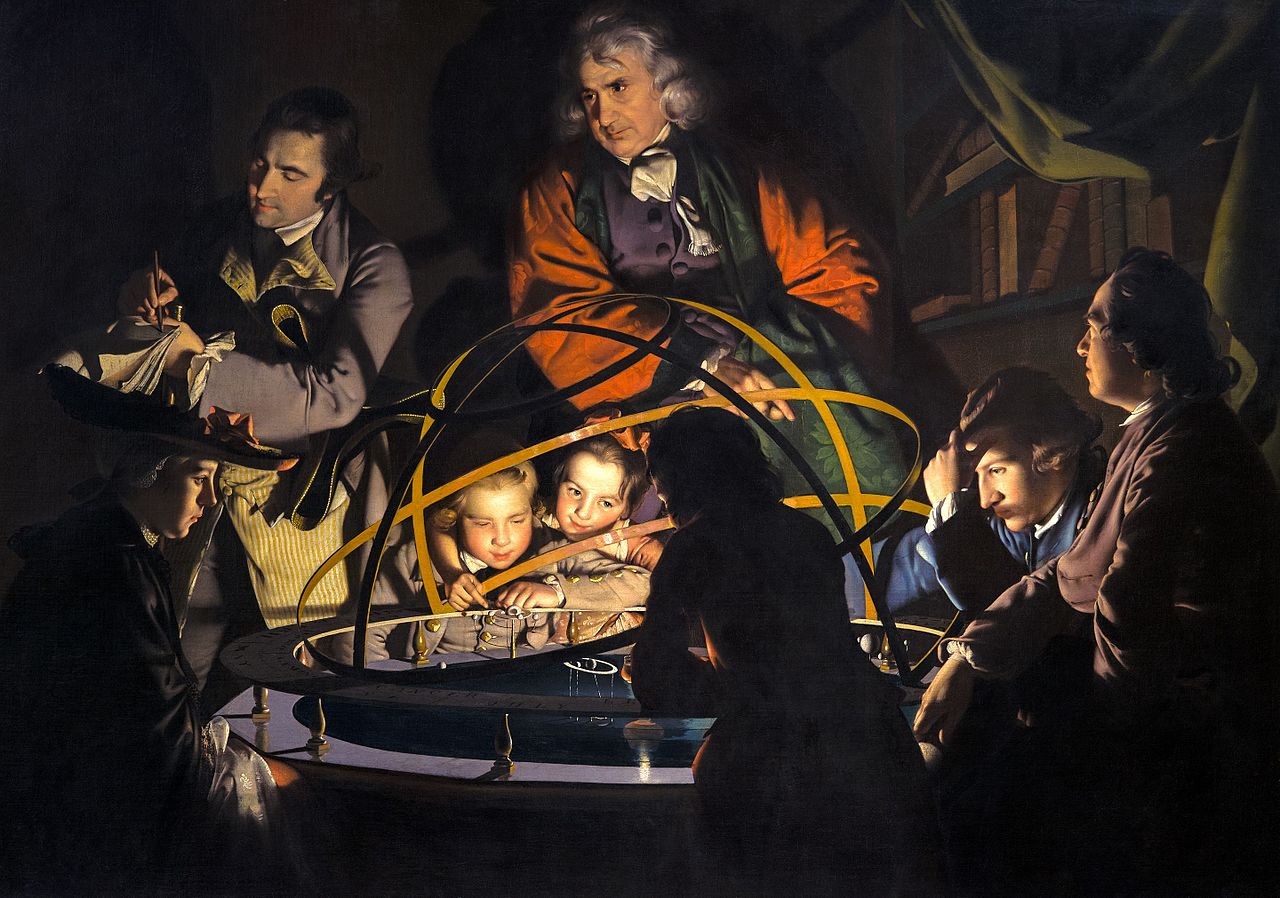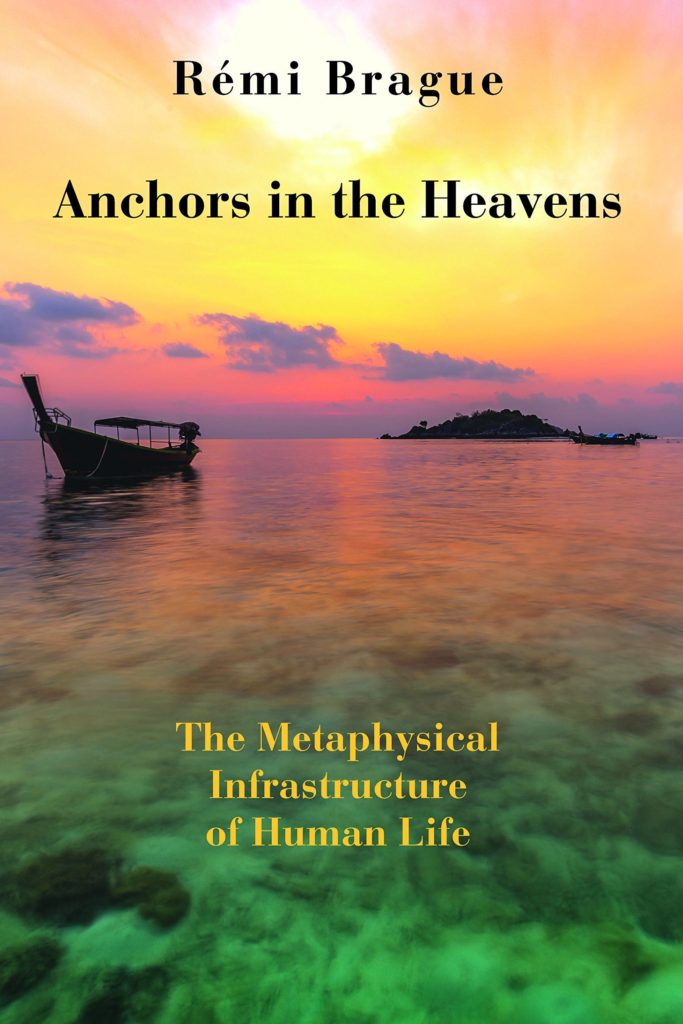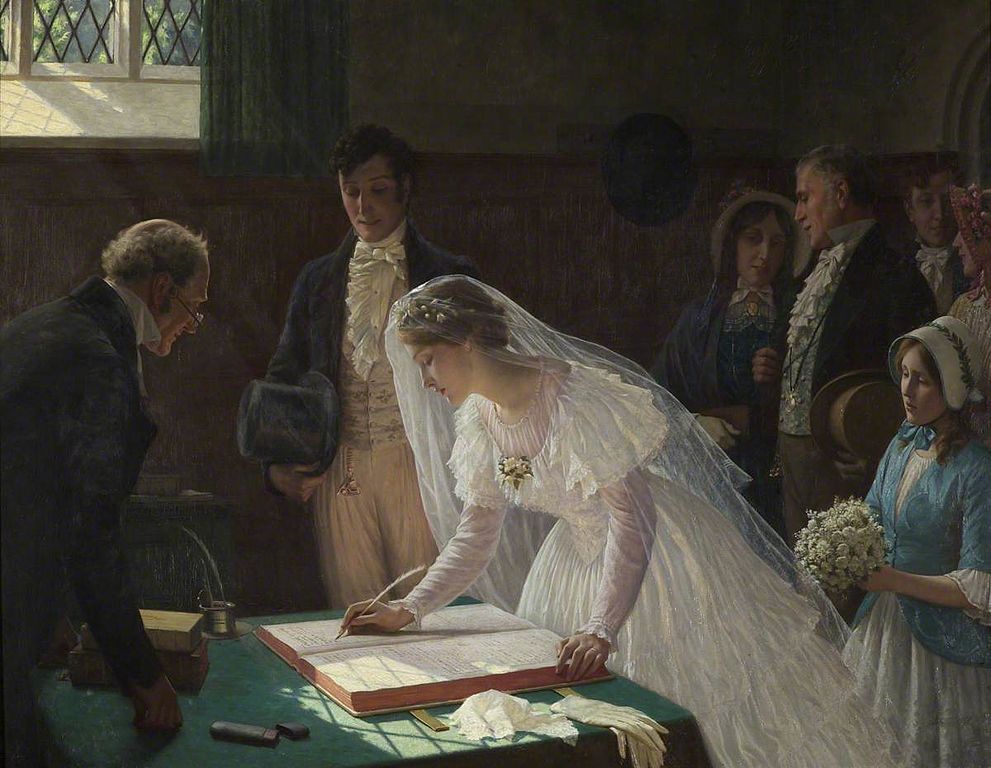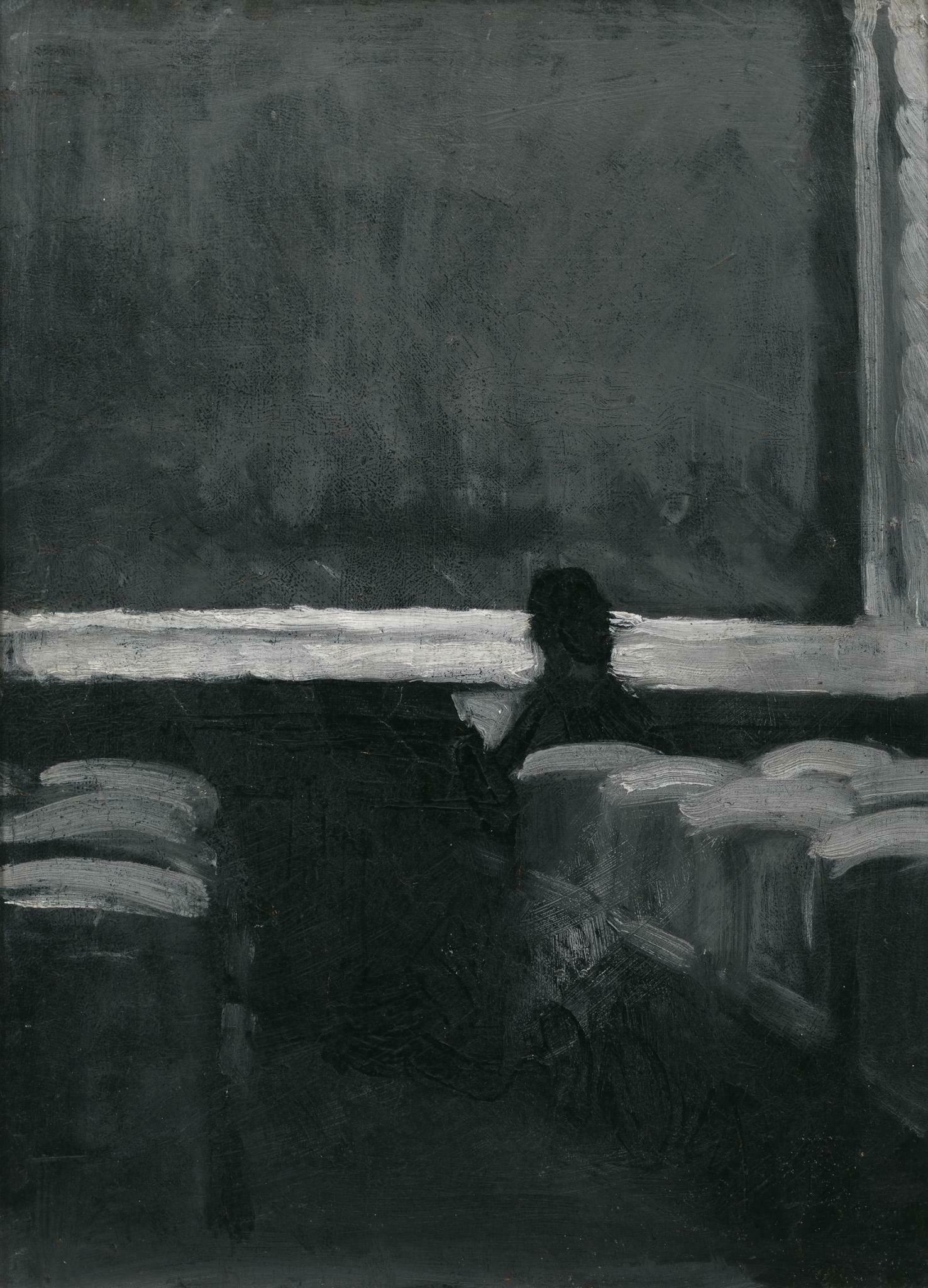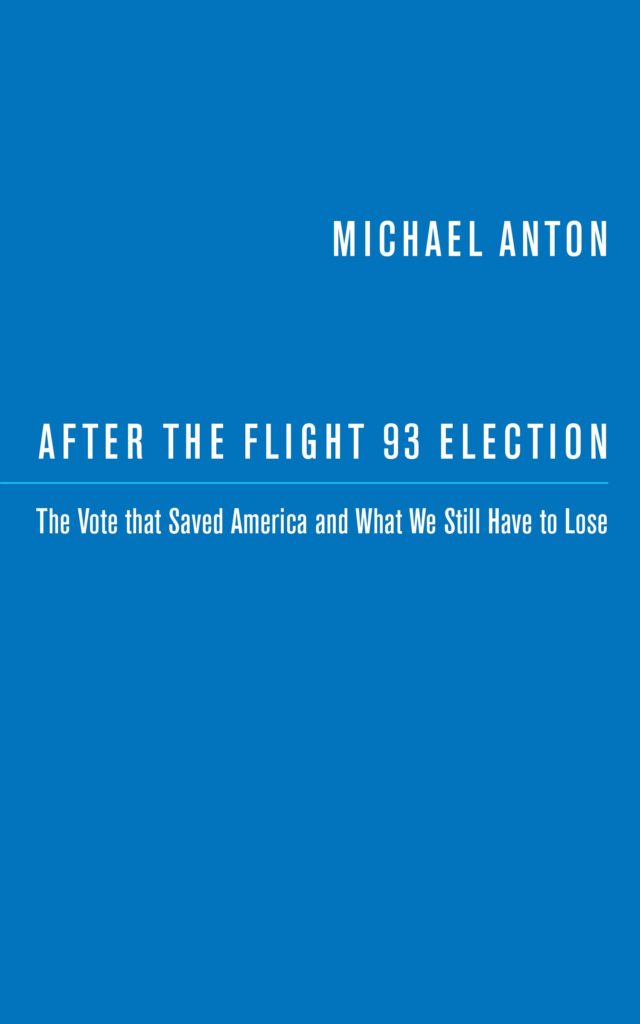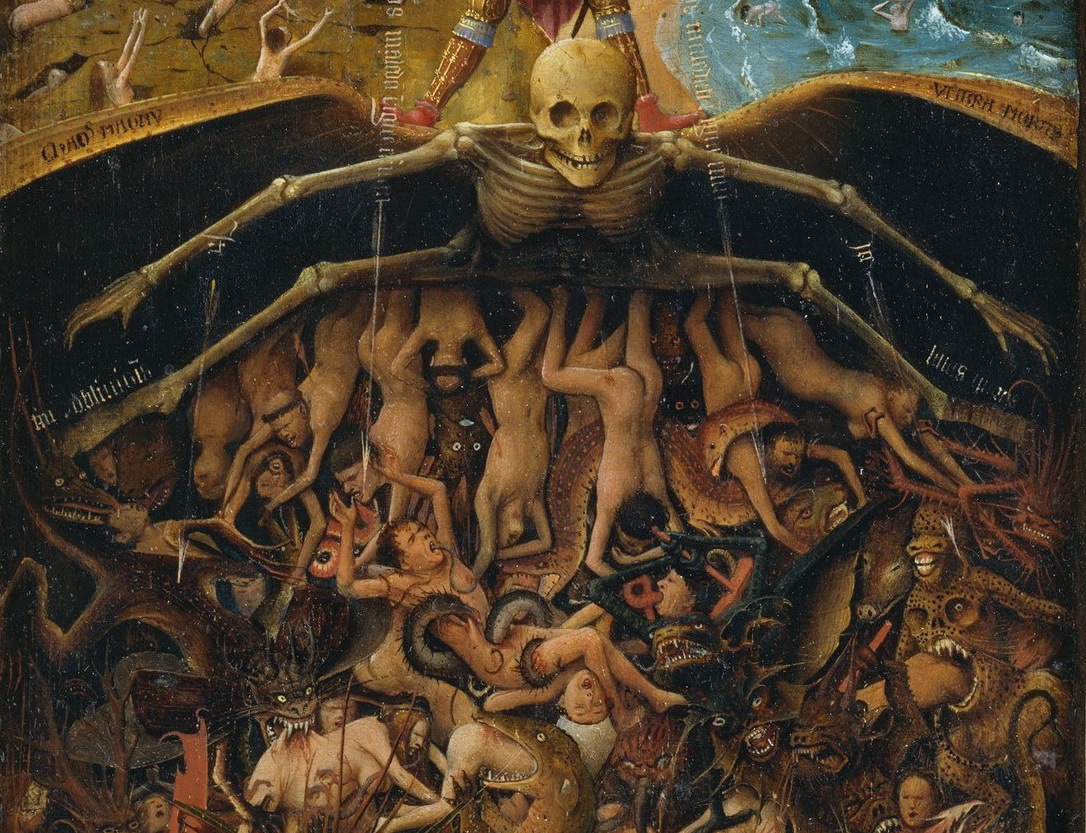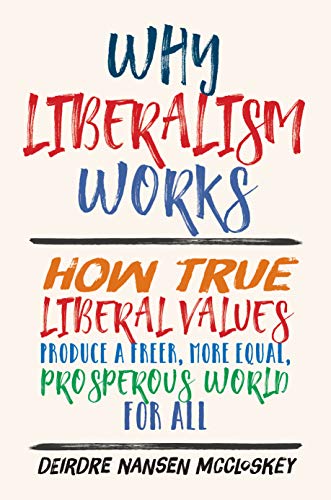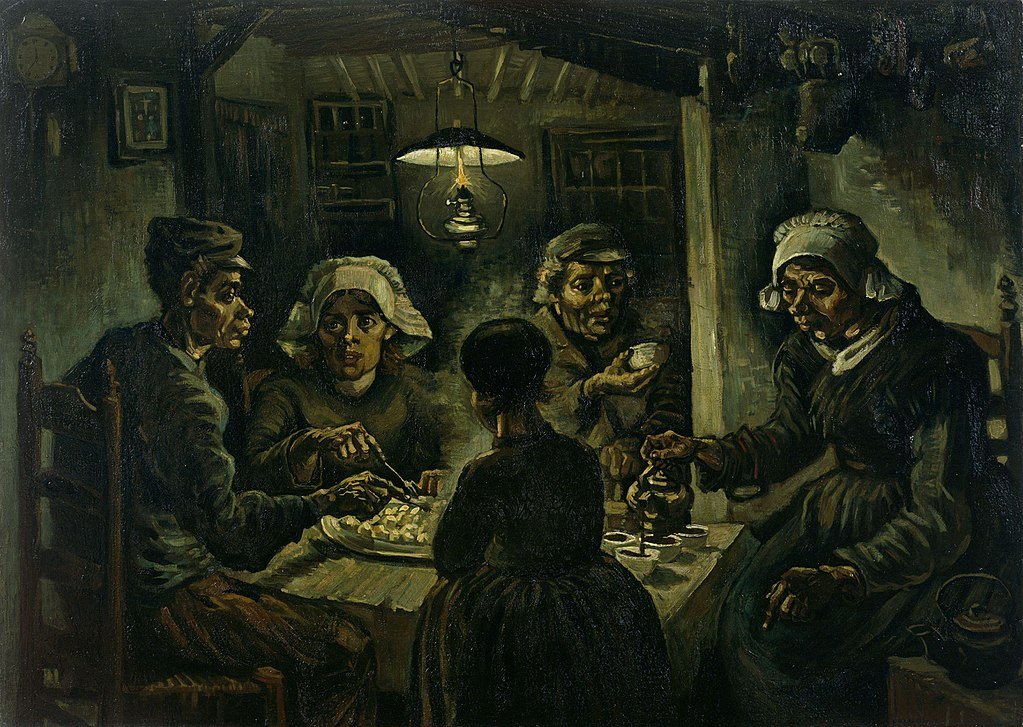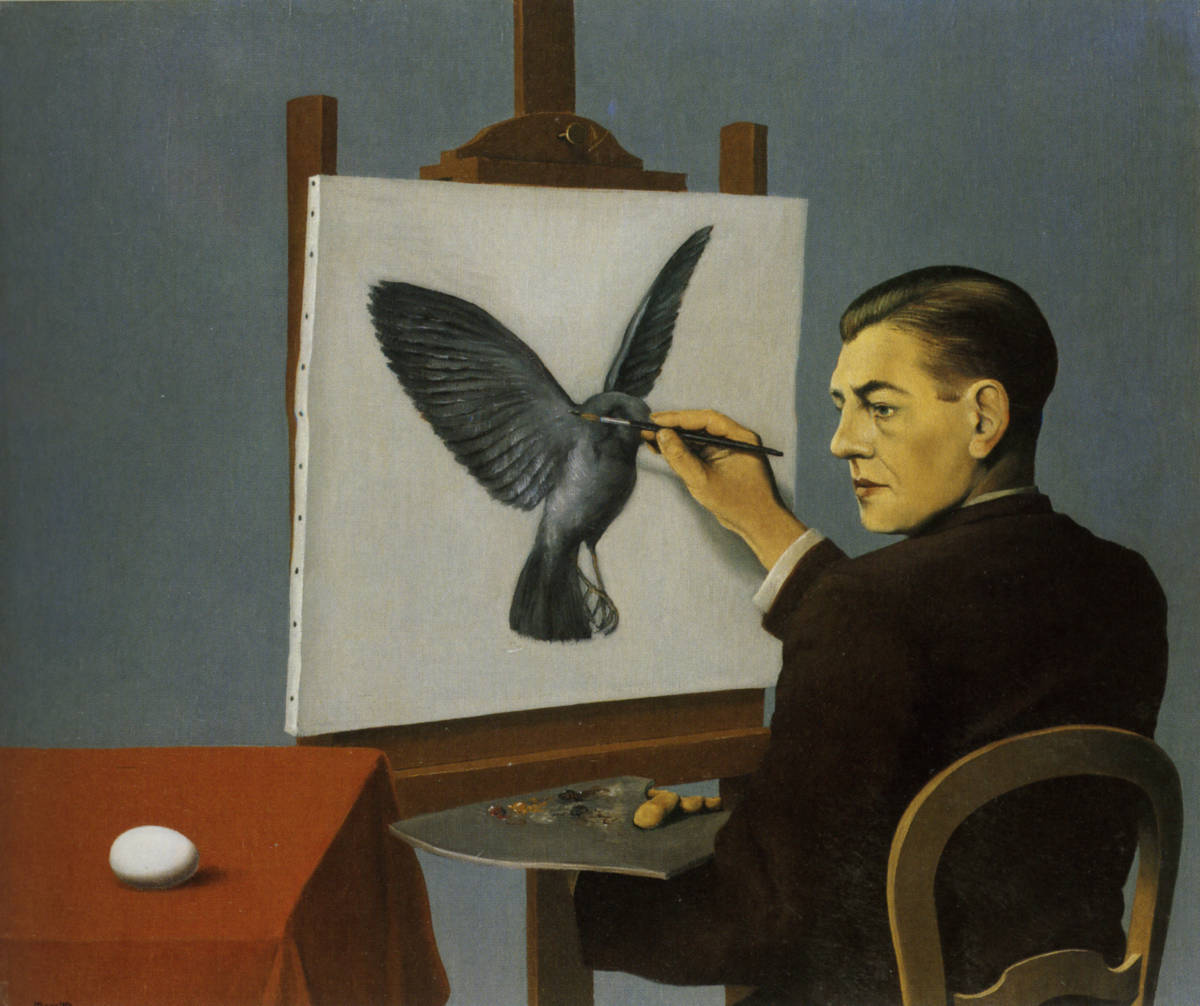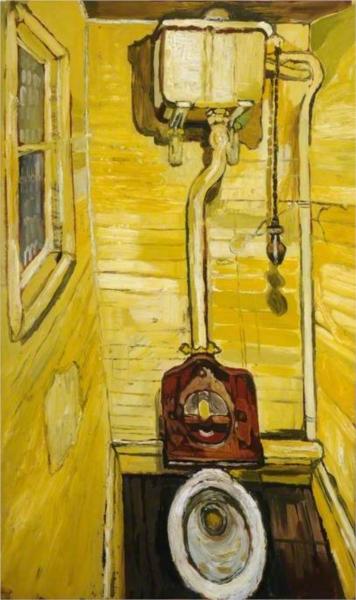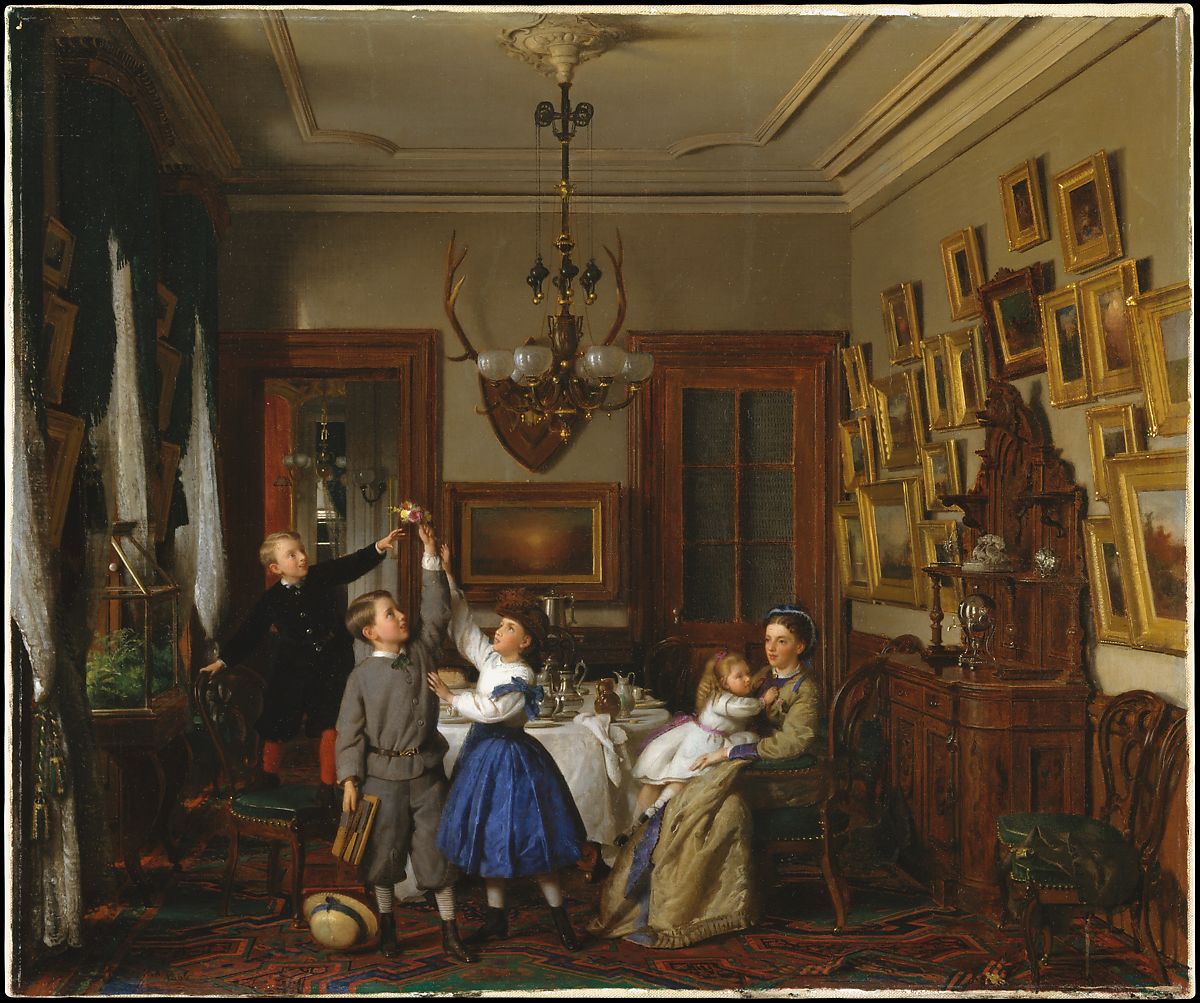This month, we are highly honored to have a conversation with Professor Wayne Cristaudo, philosopher, author, and educator, who has published over a dozen books. He speaks with Dr. Zbigniew Janowski about the predominance, in the West, of idea-brokers, metaphysical rebels and triumph of ideational narratives over life itself. Professor Cristaudo aptly points to the great malaise of the West – its fervent addiction to bad ideas.
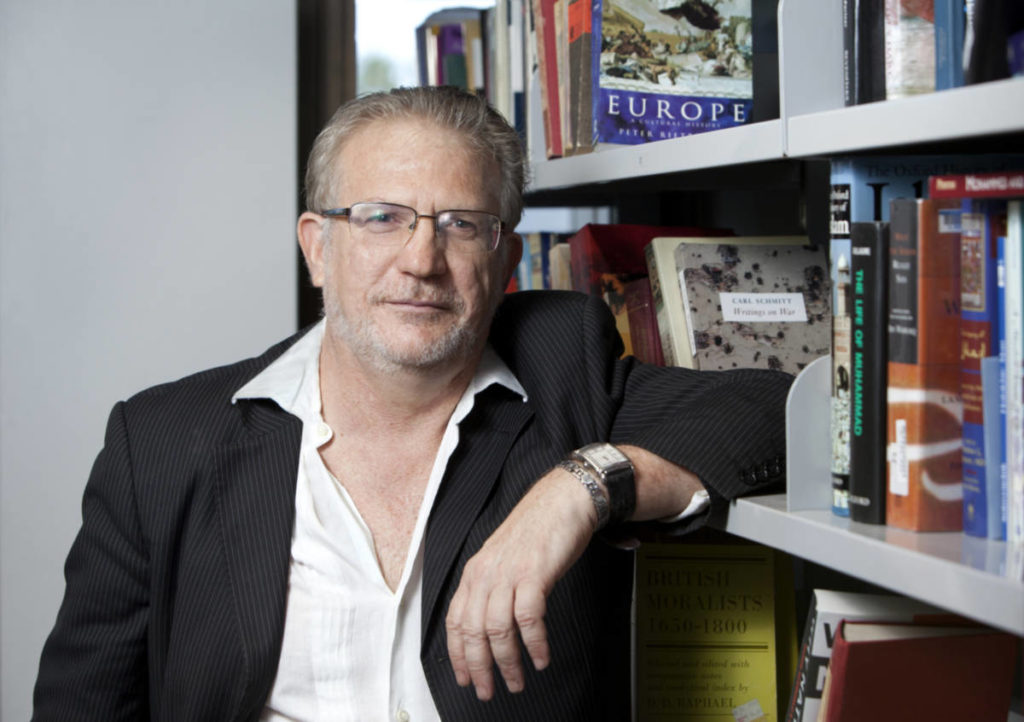
Zbigniew Janowski (ZJ): Let me begin this conversation with something that my Canadian colleague said to me when I arrived to teach in Canada—in Halifax—20 years ago. “We are Americans without being arrogant and British without being boastful.” Having never been to Canada before, I was under the impression that Canada is very much like the US.
Then I discovered – or at least what I discovered in Nova Scotia, which is very patriotic, somewhat provincial and certainly less cosmopolitan than the rest of the country – that they value their British roots, which defines their national identity. Most of my colleagues were educated at Cambridge, are Anglican, the system of education – tutorials – is much more like in the UK than in America, the city looks like small British towns, and Canadian flags used to hang on many houses, probably to stress their “independence” from the US. In this part of Canada, Britishness is still, or used to be 20 years ago, part of their identity.
As an Australian, someone from a former British colony, can you say that Australians feel like my Canadian colleague?
Wayne Cristaudo (WC): When speaking of Australians, the same kind of cleavages that are occurring elsewhere in the West between tertiary educated elites and more traditionally minded people, plus demographic changes due to immigration, make it hard to generalize.
David Goodhart in his The Road to Somewhere – largely an attempt to explain Brexit, but also the election of Donald Trump – speaks of two classes today: the “Anywheres,” – i.e. those who are largely free to work and live anywhere and whose sense of identity is bound up with their global opportunities and their own “progressive” values; and the “Somewheres,” those whose location and sense of place and national heritage matters, as they see their localities and values undergoing radical transformations.
This later group also sees itself as having lost the cultural and economic wars. My friend Bob Catley, in response to Goodhart, added that this is something of a misnomer, as the “somewheres” are now the “nowheres;” that is, their world is being destroyed daily.
In Australia, I think those who strongly identify with Britain are now in a minority, as the number of immigrants from non-British backgrounds has risen dramatically in the last few decades. When there was a referendum on Australia becoming a republic some 20 years back, the republican model was rejected. But this was not because of love for the “old mother country,” but because the majority did not like the proposed model that had come out of a publicly funded (ostensibly) representative “elite” forum.
Nevertheless, it is true that Australians would probably rather lose to anyone (New Zealand not included) besides England in any sporting event. We are, though, a deeply fractured society and so appeals to unity tend to ring hollow – as hollow as our terrible national anthem which almost no one can sing through to its bitter end. Like most other Western countries, Australian identity is secondary to some other feature when it comes to political disputation.
ZJ: Canada is part of the Commonwealth, just like Australia. On the Canadian dollar one can see a beautiful image of the British Queen. On the other side of the Canadian dollar, we find a loon. I used to tell my liberally-minded Canadian friends, jokingly, don’t think of seceding from the Crown. Why – they would ask? Because you will have to replace the Queen with another loon, a bear, or a bird.
Australians have the Queen, too, and a kangaroo. This sounds facetious, to be sure, but it touches on the problem of national identity. Cultural identity cannot be rooted in nature. Even Thoreau, who lived in the wilderness and praised nature, was a cultured man, who loved the Classics. In his Walden there is a beautiful chapter on education, in which he urges Americans to read the Greeks.
Do you see any similarities in the cultural and political predicament between Canada and Australia relative to your attachment to the British Crown? Or does the geography of Canada (as a U.S. neighbour) and yours – a continent – and different history (no Royalists [or, United Empire Loyalists] who fled to Canada after the 1776 rebellion) make a difference? For one, you do not seem to feel the same pressure that Canadians do to be more “American,” and thus, having your cultural affinities imposed on you.
WC: While I really have no idea if French Canadians feel any particular cultural connection with Britain, Australia does not have the American neighbour syndrome. As for being free to choose our identity, I think that while Australian tertiary educated people are frequently anti-USA – the USA being seen as the imperialist country which creates wars wherever it goes – it seems to me that the same class of people, especially those who are Australian ideas-brokers, take up every liberal-progressive position that is pushed by, and invariably formulated by, US ideas-brokers in the same professions. That is, our academicians, journalists, teachers, et. al. can be relied upon to repeat and vociferously defend any idea that has gained narrative traction amongst progressives in the US. Ultimately this should not be surprising.
Any collective is a collective because of the stories and experiences it shares. The U.S.-led globalisation of stories through Hollywood, Netflix etc., and the normative appeals that are characteristic of those stories, plays a huge part in how people now understand themselves. So, I don’t really see identity as a matter of choosing or not choosing, but as what people identify with, and presume. And what is occurring is that where narratives are shared and replicated, as part of daily social reproduction, common ways of talking, similar presumptions, expectations, habits (i.e., similar features of identification) are formed.
For example, the elite in Australia see Donald Trump in exactly the same way as the readers of the “New York Times” or humanities students in elite universities in the USA. At the same time, the people who voted for Brexit and the people who voted for Donald Trump have a great deal in common because they have experienced a very similar kind of loss with respect to their more traditionally based social and economic place in the world.
Interestingly, though, early nationalist theorists such as Herder held that the nation was commensurate with a more tolerant and (dare I use this term) enlightened and cosmopolitan world. Membership of a nation meant that one could connect with others through initially bonding around shared stories, experiences, sentiments, tastes, loyalties and commitments, and only after that would one be in a position to form further bonds of solidarity with others. The older notion of nationhood takes for granted that members of a nation are very different in the roles they must play and the sacrifices they must make. So, a nation bonds the different into a greater unity.
The contemporary anti-nationalist, on the other hand, sees identities as based on the will, and the body itself based on the will (sexual/gender fluidity, for example); and what really matters – indeed the only thing that matters – is that the principle of emancipation is adhered to.
Conversely, one has a stake in the future because one can demonstrate that one is of the oppressed and hence a contributor to the great emancipation. Of course, this is the triumph of the abstract – there is absolutely no need to understand people as complex characters in order to think like this. And indeed, most people I know who think like this are completely lacking in psychological acumen, historical and genuine cultural sensitivity.
ZJ: When I taught in Canada, part of the program was WWI poetry. I vividly remember teaching a poem by Wilfred Owen, which I would like to quote here: It is a poem you know: “Dulce et Decorum Est:”
Bent double, like old beggars under sacks, Knock-kneed, coughing like hags, we cursed through sludge, Till on the haunting flares we turned our backs, And towards our distant rest began to trudge. Men marched asleep. Many had lost their boots, But limped on, blood-shod. All went lame; all blind; Drunk with fatigue; deaf even to the hoots Of gas-shells dropping softly behind. Gas! GAS! Quick, boys! - An ecstasy of fumbling Fitting the clumsy helmets just in time, But someone still was yelling out and stumbling And flound’ring like a man in fire or lime. - Dim through the misty panes and thick green light, As under a green sea, I saw him drowning. In all my dreams before my helpless sight, He plunges at me, guttering, choking, drowning. If in some smothering dreams, you too could pace Behind the wagon that we flung him in, And watch the white eyes writhing in his face, His hanging face, like a devil’s sick of sin; If you could hear, at every jolt, the blood Come gargling from the froth-corrupted lungs, Obscene as cancer, bitter as the cud Of vile, incurable sores on innocent tongues, - My friend, you would not tell with such high zest To children ardent for some desperate glory, The old Lie: Dulce et decorum est Pro patria mori.
The poem is very timely in a perverse way. We live in times when nationalism is under attack, thought of as evil; patriotism is ridiculed; globalism is the new faith – but it is a faith of someone who is attached neither to his country, his religion, his civilization, or his culture. In fact, it is a faith of someone who has neither fatherland nor culture. All kinds of semi-ideologies, like climate-change, vegetarianism, etc., have become an ersatz for cultural identification.
The last line of the poem seems to ridicule or question the idea that goes back to the Romans and the Greeks.
When I taught this poem in 2001, the Canadian students were somewhat divided about the idea, about it being a lie to die for one’s country. However, one student – whose parents I knew rather well, a very old Nova Scotian family – blurted out: “I have no intention of going to war and dying for American IBM or the Canadian Postal Service; we had Royal Post and now we have a big nothing that does not even deliver mail on time.”
I thought it was an interesting answer. It expresses a deep human sentiment – the need to be attached to national symbols, country. Even death has cultural ramifications. People want to have a reason to die; they do not want to die as cogs in some global machinery – needlessly, senselessly. What is your take on it? Are Australians similarly minded, or are they going to go to war to die for Starbucks, and dying for Starbucks or Amazon is the new truth, whereas pro patria mori to gain glory is “The old Lie?”
WC: I think my last answer anticipated this question somewhat. So, let me leap ahead again and address what I think is the really important aspect of your question. As you have gathered, I am not at all comfortable trying to speak about Australian-ness as if I were somehow a representative of it, or as if it were some sort of essence. Its meaning is very loose and mutable. And, as far as I can tell, in so far as it exists today, I think it is largely limited to the “somewheres,” though the “anywheres” might support their one national team in sports such as cricket, rugby, soccer, the Olympics, etc.
The following example is pertinent. Recently, a Christian rugby player (one of the few star players in our national team) lost his contract because he tweeted that liars, adulterers, drunkards, homosexuals and others were going to Hell and he called for them to repent. He had violated some ethical code that the sponsors (Qantas) had dreamed up. Of course, it was not the adulterers, liars, drunkards who were offended, but the gay lobby group. The country was deeply divided – and the irony was delicious.
Most of the “anywheres” wanted him sacked because what he said was “hateful,” yet few of them actually believe in “Hell;” most of those who supported him were “somewheres,” and many were not Christians, but simply did not like a corporation having so much power, and they also don’t like the idea of their jobs being reliant upon not being allowed to express their opinions.
The “anywheres” present themselves as defenders of the minorities and marginalized, which means they put gays, “people of colour” (so all non-whites can be treated as oppressed), and Muslims all in the same box. I very much doubt that if the rugby player had been Muslim, he would have lost his contract. It would have gone into the “too hard to deal with” basket.
The globalist or elite understanding of identity requires simplifications which fit the larger narration of their idea of a better world, and that is somehow (inanely) supposed to bring together (non-European, and non-Christian) traditions and culture with modern sexual freedom and gender (now non-binary) roles. But the more archaic understanding of identity was based upon more primordial aspects of collective suffering and sacrifice, founding and forming.
The ancients knew that life is sacrificial – and the ritual of sacrifice is a figurative display of one of the most primordial truths of human existence – collective life requires of people that they yield something of themselves to the collective, and each member plays a role – those roles are not equal, of course. How could they be?
Equality is abstract; our original divisions of labour are driven by real problems not abstract ones – someone must grow the food, someone must stop others from making raids, someone must pray that the gods support us, someone must judge and so forth. Each kind of sacrifice has a specific value, and pay-off – warriors have weapons and extract from the food supply, but they risk their lives; food producers have security but are vulnerable. Life is not a geometrical puzzle composed of equal parts.
ZJ: So are you saying that the pre-modern understanding of the sacrificial dimension of social life has been replaced by a more abstract understanding that makes life more manageable?
WC: Exactly. The abstract nature of modern appeals goes hand in hand with an approach to social life generating leaders/elites who have to justify their authority: they are moral paragons who know all that needs to be known, and they will “save” us all by educating us to think just like them. But who wants to sacrifice themselves for a world that is part Brave New World (sex/ drugs/ infantile distractions and self-absorption) and 1984 (complete conformity down to what one thinks or thought twenty years ago)?
The world that is supposed to be totally emancipated will become the most slavish society ever; and the irony is that it will do so largely because the modern elite have no understanding of the sacrificial nature of existence – for our contemporary ruling class, sacrifice always means oppression.
The archaic and pre-Westphalian “people” or nation was a collective formed across generations, in which roles enabled different groups to operate upon, and open up, different “fronts” of the real: it identified with a certain history and destiny, and hence is as apposite as it is for tribes, cities or empires.. The nation in this sense is a source of collective sustenance; and as such it commands sacrificial service. To be sure, because something is held together by its sacrifices does not mean that those sacrifices may not be in vain, nor that there was never cruelty, or “oppression.”
Let me also tie this together with the point you make about what the young may be willing to die for – not, say, Starbucks, or a bank. We know that humans are quite ready to throw their lives away for something they believe in. And as I said, people generally seem to need to serve something higher than themselves. For a lot of people today it is climate – and there is a faith in the earth as our mother; and if we but treat her well she will treat us well.
This is a good illustration of the polytheistic nature of the modern – but this is all concealed because we use what Vico identified as demotic, rather than poetic language. And hence we make issues around climate a matter of “science,” reinforced by ideology and mechanisms of political authority.
So, the way I see it is that it is the spiritual hunger that is driving the various progressive/utopian narratives – and these are, in turn, shored up institutionally and economically, so that those who learn the narratives and share the spirit will become the priests, and their narratives become the prayers that the rest of us are meant to live and swear by.
But those whose economic agency and social existence is not at all nourished by this god, and this priest-class, look back to what has provided nourishment from the past – and that is the more traditional forms of communal solidarity: family, workplace, church, and the nation. But, sadly, for them and perhaps for us all, the fracture is so great that I do not think repair is possible.
ZJ: Let me ask you a related question about death. Albert Camus wrote the essay “The Myth of Sisyphus,” which opens with a strange idea: There is one, and only one, philosophical problem – that is, suicide. I was always puzzled by it. Here is someone in the middle of the 20th-century, who claims that the entire effort of Western civilization was pointless unless it addressed this one question. Accordingly, only a few thinkers would qualify to do philosophy in this sense: Pascal, Kierkegaard, Dostoevsky, particularly his Dream of a Ridiculous Man. None of them, let’s note, figure in history of philosophy books.
Camus goes on to say that the question is whether it makes sense to go on living. In other words—Does life make sense? And he answers by saying that there are only two ways, of which the Don Quixote way is the only solution. What he means by it is that we have to invent sense. I like the Don Quixote metaphor. What happens in the novel is that Don Quixote wants to revive chivalry, an ancient, medieval way of life. He fights with windmills, glorifies a woman from low background by elevating her, in his imagination, to the status of a lady. Everybody is laughing, thinking that he has lost his mind, and to indulge him in his insanity; everybody plays the game. However, as they play the game, they get caught up in living in his world – the world of imagination.
One way of applying it to Camus is that only by elevating our status as human beings through imagination which creates values. Can we elevate ourselves without thinking about dying a senseless death? Do you think that what I said can be translated into contemporary social or political categories of national culture, patriotism, of defending oneself against the onslaught of globalist ideology, which leaves people helpless and contemplating death because they see nothing to live for? The suicide rate in the US went up 30 per cent or so in the last 10 years, and it is highest among young people.
WC: I love Camus – and it was very wise of him to make suicide a central issue, though the importance of collective suicide is something, I think, he addresses in The Rebel, a book I admire even more than the Myth of Sisyphus because it provides one of the most important diagnoses of the rise of totalitarian philosophies and politics.
At the heart of the book is the idea of metaphysical or cosmic rebellion, which I think is his greatest idea. Metaphysical rebellion is the defiance of life itself that involves resorting to absolutist abstract ends such as freedom, equality, justice, identity (the Nazis) which can never be actualized but which pull us ever further into violence and murder.
Camus compares this with rebels who make a pact to improve their specific lot and know that sacrifice and murder will be part of the deal – but in the knowledge of what they are doing, they bond together around the limit of their pursuit for overthrowing a specific group of people who are doing very specific acts of injustice. This is very different from someone saying that an entire system is unjust and that one must destroy the system/totality and replace it with a new one based upon perfect principles.
Metaphysical rebels – which is what the modern intelligentsia largely are – do not own up to their murderous incitements or deeds, and they find their absolution in the perfection of their ends which exist in such stark opposition to the world that they make.
I think it is also pertinent to your observation about Don Quixote. Cervantes is another great critic of modernity, who sees essential features of it and hence consequences for the modernization of humanity at the moment of modernity’s birth. His imagined world has a depth of meaning that the mundane world has lost – and it has lost it because it has sapped the inner resources of the imagination by constraining them in such a way that they are either directed to technique or technology, or entertainment and art.
Nietzsche saw the problem of nihilism, but he thought he could manufacture a myth that would make life for the strong worth living (“the eternal recurrence”). I think this is another symptom of the insane hybris of modern thinkers who think their scanty and threadbare ideas – their little bit of learning suffices to make a world (again, Descartes springs to mind, with the World being the title of his posthumously published magnum opus, though he limited himself to the natural world).
It would be a very good thing if people stopped revering intellectuals and operated from the basis that none of us know very much. One reason I like monotheism is that it accepts our need to divinize and serve, but also restricts it to one power. I am astounded, for example, by how little Marx and Nietzsche knew, compared, say, to Herder, who seems to have never stopped finding out stuff – not that I know that much, but my point is that none know that much compared to the infinite quantity of what there is to know.
ZJ: Since you mentioned Descartes, the question arises – his mechanical model of the world and man, his nature, whose operations can be explained in scientific terms, does not make room for values?
WC: Modern myths are really “make believe” and they are predicated upon conscious decisions. I think pre-modern myths work exactly in the opposite way, which is why pre-modern myths are so fecund and modern ones so narrow and limited in their social appeal. This also relates to the other part of your question about national culture and globalism. National culture was a name after it was a fact, or rather an amalgam of practices, commitments, processes, appeals, symbols etc. long before there was such a thing as “nationalism.”
Thus, it was that when nationalism became a coherent ideology, it required retrieving a past and its symbols as powers for intensifying the solidarity that was already there in a particular collective formation – people felt part of something before they gave a name to what they were doing and had been done. The nation was actual before there was nationalism; nationalism, though, was invoked to overthrow powers that could be identified as serving other national or imperial interests. (Of course, the modern nation and modern nationalism also introduced novel political elements which were part of the great transfer of power between political elites).
Typically today academics see something like the nation as a confirmation of their belief that societies are constructed – the presumption being that they can create/ construct the kind of society they want. I think they confuse what it is they are doing and want to achieve with what other people before them have done. They focus upon intention, and completely miss the vast array of world-making that simply happens and is neither conscious nor intended.
ZJ: Once, in our private conversation, you mentioned Allan Bloom’s book, The Closing of the American Mind. The Great Books Program, of which Bloom was a great defender goes back a hundred years. if I am not mistaken, Harvard University Press or the University of Chicago Press were the first to introduce a set of readings – books – that every American should read. The Great Books Program became a standard of education in the US.
Bloom’s Closing started a furious debate over Western civilization in the States. Even Jesse Jackson, not known for his learning of Western Classics, said, “hi, hi, ho, ho Western Culture’s got to go.” It’s gone. The consequence – serious education disappeared from American college campuses, which became a mecca of cultural barbarism.
Here are a few questions. What kept Americans together, what formed national glue, was the reading of Great Books—the European Classics, which kept them close to Europe in the 20th-century.
What kept, or still keeps Australians (culturally) together? How did you ensure the sense of European identity in Australia?
WC: Let me first say something about Great Books in general, their importance and Bloom, then the US and lastly Australia.
I have taught the great books ever since I started academic life. One course that I taught for many years at the University of Adelaide had the title, “Great Ideas of Western Civilization;” another “Great Ideas in Literary Texts.” (Though the problems that have come to light with Australian universities wanting to stop, or undermine, the attempt to introduce courses in Western Civilization by the Paul Ramsey Foundation, indicates that, in many campuses, I might not be able to run courses with such titles today).
The reason I taught these books is that for a book to be considered great, it has to have had a great impact. The greatest, say, the Bible, the Koran or the Iliad have been people/nation-forming. The next greatest have been human-type forming. And finally, less impactful, but still important, the genre or subject forming or developing. Socrates and Plato formed a new human-type (the philosopher). Of course, the Pre-Socratics are their precursors in this project. Aristotle does not do that, but he certainly improves and contributes to philosophical ideas in a “great” way: One simply cannot talk about the Middle Ages without talking about the Medieval university and scholasticism – and as soon as one talks of them, one must speak of Aristotle. For Aquinas, Aristotle was simply referred to as “the philosopher.”
A great book is not just a matter of quality. This is where I think Harold Bloom got it wildly wrong and why his book on the Western Canon ends up as a list that exponentially increases because there are more and more people writing and a lot of it is very good. In some cases, the literary quality of a great book may have nothing to do with its greatness. Goethe’s Faust is a great book in its depiction of the modern predicament. But as a work of literature it is terrible – poorly cobbled together (over a life-time), haphazard, and containing episodes of very uneven quality, ding-dong poetry, etc. But none of that matters. To be greatly crafted and even imagined does not mean a work is canonical.
While Harold Bloom makes too much of literary qualities when it comes to great or canonical works, Alan Bloom makes another kind of mistake – though he is so much better than most of his critics who were just ideologues. Alan Bloom (in this he is just like his teacher, Leo Strauss) treats the great books on the basis of their perennial character. Like Strauss, he detests relativism and historicism. I don’t want to go into the grain of the arguments concerning historicism. And as for relativism, I think it is just a very unhelpful word, and I am suspicious of the way that disputes, where the details matter, become cordoned off into an “-ism.”
But what Alan Bloom and Strauss (to those who read German, this pairing of teacher and student is pretty amusing) tend to do is make of their student homo perennial as well as the book. So, once they start engaging with Plato or Machiavelli or Rousseau, you also find yourself caught up in the American constitution as well as arguments that ultimately require you to give yourself over to how Alan Bloom or Strauss see the world, which is ostensibly very reasonable, and which ostensibly owes so much to Plato or whoever. All sense of “growth,” of collective engagement and lessons that transpire over time and across the ages, that arise from very different kinds of circumstances and ways of world-making is simply brushed aside as “historicism.”
I don’t like this at all, because I think their students are usually very weak in their ability to enter more closely into other worlds and deal with problems that are not their problems, but which if they took seriously might considerably broaden their horizons, and their imagination and their capacity for empathy as well as their appreciation of human and collective nature and development. I have always found Straussians somewhat like Marxists. Girard tends to attract similar types: they all think what they know is essentially what they need to know.
So, Great Books – yes, great. But their point – for readers of today – is not merely to draw us into one person’s take on the real – no matter how brilliant. Rather such works serve as entrances into worlds far beyond what we think we know. They are revelations, founding acts of creation, as well as entrances into the creation of a new “world.” And one must realize how much contestation is going on within them, and how they are an opening to a great array of circumstances and problems and points of view, and they do not spare us our own tribulations and need for resourcefulness. There is no human master whose feet we can sit at while supping forever off their words. Life is one great trial after another.
ZJ: How does it relate to Australia, your sense of identity, and can one claim, as Americans did, that identity can come from reading certain books?
WC: As for the US and Australia and great books, as far as I know, the curriculum in the Arts and Humanities in Australia (up until the 1980s and 1990s) generally included works that would also be considered great. At the same time, I think already in the 1920s and 1930s, a scientistic spirit had entered into the university as behaviourism, and positivism took hold of the social sciences. Philosophy was beginning to focus upon problem-solving and moving away from a knowledge of the history of its subject.
But it was really the 1960s politicization of the curricula that led to the disciplines and their founding/core texts (great books) undergoing such a transformation that the minds of the students who entered them were left in tatters, only glued together by ideology. The same process, more or less, happened in Australia.
I think the identity that was cultivated had far less to do with universities, which were for the relatively few, and far more to do with schools and churches, and also clubs and associations. Here the Bible mattered a lot. As for Plato or Rousseau, etc., not that much. I suspect, but am happy to be corrected on this, that Montesquieu and Locke mattered far more for the historic moment in which Jefferson, Adams, Madison and Hamilton et. al played their part (and because they are founders, their ideas and reading really matters) than in times when the creation, diffusion and variety of ideas and practices are implicated in events that don’t have overly much to do with humanities subjects in universities.
Indeed, my criticism of Alan Bloom and Strauss is apposite here, in trying to figure out the values and collective decisions that were important in the U.S. and Australia. In the second half of the nineteenth century, or much of the twentieth century, I would not be primarily looking to universities, certainly not primarily to the study of Plato, Hegel, etc. when thinking about the US or Australia but to larger events and more variegated narratives, and the insights of journalists, writers, clerics and other well read cultural figures: the cultural unity was not primarily philosophical because it was not an ideational/ ideological fabrication. The importance of the Bible I just mentioned confirms the point I wish to make: the Bible is not a book of “ideas” – indeed it confounds rational explications of human behaviour or ethics. It is a book of stories, events, mysteries, relationships, trials and failures, broken and kept promises, sin and redemption. It is a story, a love story between the Lord and His “servants,” told across many ages, involving many people and events – not a philosophy. It spawns countless interpretations because it is full of contingencies – which is the way life is; philosophies, on the other hand, smooth out contingencies to make them align to what we or someone can rationally think about them.
However, in the 1960s, I think this changes because there we can definitely recognize (a) that the rise of mass education will impact upon those who go into professions and (b) that the ideas which were part of the social revolution of the 1960s have gained increasing social traction – in part again because teachers, journalists, etc. go to universities where these are the narratives and ideas they get trained in. This also happens to occur at times when the other sites of social induction (the church and clubs and associations) decline in terms of influence.
So, the attack upon authority coming out of the universities, which then enters schools, newspapers, tv shows, movies, etc. changes the entire culture and aesthetics of appeal and value, and indeed the moral economy, so that now being hostile to tradition is affirmed by one’s grades, employment opportunities, moral status.
To put it bluntly, the destruction of national identity, which is common to the entire Western world, is a direct corollary of the creation of an elite group of educators that is essential for the social reproduction of professionals who are needed to run the private and public sector. It was this class that created the Russian revolution, and it is this class that is creating the global revolution. And in both cases what was being thrown away was the features of identity and solidarity that are not the results of elite manufacturing.
Unfortunately, our elites can only think in terms of elite manufacturing. This is our tragedy – that our social and economic dependencies are dependencies of destruction – conscious attempts to rip up ways of life in which many people still have a stake, and replace them with new ones in which the stakeholders are mainly paid for words, ideas, and enforcement of those words and ideas, and practices that fit them.
ZJ: Several years ago, the Polish philosopher, Ryszard Legutko, published The Demon in Demon in Democracy, the book you read and liked. It sold 16,000 copies within a year. It may not be Bloom’s million, but it is totally unprecedented. It was translated into German, French and Spanish. It provoked good reactions for the most part. How do you explain its success? What is it about Legutko’s book that explains why so many people read it?
WC: When Closing of the American Mind came out a lot of people could see there was a kind of madness coming out of higher education, especially, but by no means only, in the USA. That book gave an explanation for it, and it also offered hope that there was a better cultural way. Sadly, I think that way has no institutional support.
Having said that and perhaps to offset my pessimism, it is also the case that institutions are bearers of spirit, and spirits die; and then it is up to us to give birth to new institutions that better enable us to carry on across the times, as we gather and transfer our powers to future generations. So, what I am seeing in its destructive throes is also the occasion of new unpredicted responses and creative acts that may well help us outrun these diabolical stupidities of the modern mind and heart.
Legutko’s book, which I learnt about through Nick Capaldi, is about the diabolical nature of over-politicization and the tendency of that within democracies. One should bear in mind about democracies that they have never endured for very long; and that while they solve problems, they also create a problem for any class or group that wants its way. This is the problem being faced now – democracy is taught as a good thing and is defended by journalists, etc. until the moment when the electorate do not want what their elites – especially those who live off narrative formation, instruction, etc. – want.
The EU is the model of the Western post-democratic future, though it may just fall apart. Again, I think there are many people who agree with the diagnosis provided by Legutko of how liberal-democracy is proactive in forming a totalitarian mind-set – confirmed, of course, in practice, by the hostile student attempt to stop him speaking at Middlebury. Again, it only showed how desperate our ideas-brokers are to preserve really bad and fragile ideas.
ZJ: What I find surprising, and I do not say it to diminish the originality of Legutko’s book, is that we do not find anything shocking in the book, and yet it became a philosophical bestseller. When I read it, I thought, it is very good, persuasive, very well-written – but he says things that should be obvious to everyone. Yet he infuriated the professors and students in America, at Middlebury College, for example, to the point that his lecture had to be cancelled because the college could not guarantee his security.
Under Communism, we would have loved to hear a speaker who said things which were controversial. In today’s America, we shut down people who even dare to think differently. Is the situation in Australia the same?
WC: Identical! Again, it has to do with class rather than culture; or, more precisely, class can also affect culture. The Left thinks it is making such great strides in human emancipation when it is just ensuring that we are replaceable, that we are resources to be managed and directed by those who have the ambition to rule, manage, and control the future on the basis of their certitudes about the nature and purpose of life. This is why global corporations can, and indeed do, ally themselves with socialist or “woke” “radicals” and causes – BLM, Antifa, etc. Forgive me being bleak again – but this is why the faith I have in humanity comes from spontaneous, unpredictable acts of loving kindness, friendship, etc.
Those people who booed and shut down Legutko showed that they are the real enemies of creative freedom and are the enemies of a more convivial future. But they cannot see themselves. If, as they get older, and they wake up a little from their “wokeness” and look back upon what they have done, and if they have any spark of soul left, they will be ashamed of what they have done. The millennials are just re-enacting what my generation did some fifty years back; and so a number of us also look back in shame at our younger selves.
ZJ: Let me go back a bit. You do not have, and have never had a Great Books program; nor did the Canadians. Only Americans did. All three of you were former British colonies, yet only in America’s case was the national identity guaranteed by “pumping” European heritage into the students’ minds; not in Australia, not in Canada. How do you explain it? Is the presence of British heritage stronger there than in America? Or is it connected with the idea that the U.S. had become much earlier a country of immigrants from all over the world, rather than from Europe or Britain?
WC: As I mentioned, I did teach Great Books, and for a long time. Although people did not teach subjects called Great Books, parts at least of the curriculum of the BA was steeped in Great Books. English literature students studied Paradise Lost, some Shakespeare, Blake, etc. Philosophy students some Plato, or Hume and Locke, and so on. So, I think the kind of “pumping” process was occurring. But as I said earlier, I think, the Bible excepted (and even that spreads through rite and ritual), the cultural formation should not be understood solely through books.
The British heritage was strong in Australia – but not so much now, though the other cultural forces are more diffuse. But the American influence (music, television, film, books, ideas) is huge. I don’t want to segue too far into American identity, but I will just say that I think Americans tend to see the world as themselves writ large, and Australians also tend to do this. There is, in my opinion, too much blah-blah about identity. Where real identity exists, one often doesn’t talk about it; one just carries on a certain way. Where people insist upon identity for political gain, it is usually because they want to dictate how people with certain features or interests must behave. It is very self-serving, and has little to do with any reality. It is true that if one’s world is under threat, then identity may be important. Context matters – there is a big difference between identity being appealed to from the ground up to bind people together because they are genuinely under threat and are treated as identical by enemies wishing to harm them than an elite defining what constitutes an identity so that they can make clients and dependents of a group with certain common features.
ZJ: Americans are obsessed with their founding. Each year we have another book about the American Revolution, and how great it was that we separated. One of the myths is “persecution” and “freedom” – which from European and particularly British perspective, sounds strange. It was the dissenters – the troublemakers – who fled, colonized the continent and, as a distinguished English historian, Jonathan Clark, sees it, 1776 was the last war of religion, and the unfolding of European history in the New World.
This is not so in Australia (or Canada where the Royalists fled [and known as the United Empire Loyalists). You do not have the same national myths, and your relationship with your “mothership” does not seem so stormy. Where might such a difference come from? What is Australia’s relationship to Britain now?
WC: We were settled by convicts, though not South Australia. The Australian myth is one of rebellion, mistrust of, and refusal to kowtow to, authority. Our founding myth is the Anzac defeat at Gallipoli. We are a nation of losers, so to speak. But there is also a sense of betrayal by the mother-country, of us being sacrificed in a larger game which we did not control. The other part of the myth was the Outback. But Australians largely live on the coast and most are urban dwellers.
Now the tertiary educated, who dominate our ideational narratives, see Britain as a colonial power wreaking destruction on the world, so we should distance ourselves from it. (They are so historically ignorant that they do not see the relationship between resource competition, the scale of territorial power, military conquests and alliances, the need to find resources to maintain military power, and hence the logic of empire as expansionary but also cross-cultural).
Thus, we went from having a bit of a chip on our shoulder about the British, to seeing ourselves as their moral betters – though we still have bits of shame and guilt to pour on ourselves with respect to the treatment of indigenous people. Given that the British, like the Americans, are also caught up in their own guilt and past shame, this too is a more global phenomenon within the West – Chinese and Muslims certainly are not using their own sense of shame as a means of moral, economic and institutional opportunity or gain. What matters for them is pride in their past – and their shame comes from the power they have lost, not the power they inherited!
Our old myths really have little leverage in Australia today. And all myths to the contrary, we are, in fact, a terribly bureaucratic country. The urban/regional split also means that those Australians who are more like the mythical Australian (laconic, irreverent, more given to practical action than talking) tend to be seen as stupid by urban Australians.
One only has to tune into our national public broadcaster to see that our tertiary educated urban population are a nation of groupthink. Try questioning climate change in any public forum, or within a university – good luck! So, we are a torn country. Presently, many argue we should not celebrate Australia Day because it is celebrating conquest, if not outright genocide. Our professional classes are as given to moral absolutes and hyperbole as the Americans and other Western European professional classes – on very similar issues. Once again, it is symptomatic of the globalisation of industry and ideas, and the divide between the old national members and the new globalized elites.
ZJ: Let me recall a historical fact that few people remember or know of. In 1975, the Australian Parliament got dissolved by the British Queen because it suffered from gridlock. In other words, it became dysfunctional. We cannot do this in the US. In fact, we cannot do it anywhere with full democracy. In your case, it worked and it proved that a mechanism like that is needed because a parliament or congress cannot dismiss itself. Monarchy – however limited – seems to work. Look at Brexit… Parliament is helpless.
WC: Well, in that instance, it was the Queen’s representative that broke the gridlock. Many still call this a constitutional crisis, even though the election quickly followed the sacking of the elected Prime Minister. In a sense you have answered your own question. Britain is a monarchy; but parliament is helpless in times of a crisis. A political system is ultimately only as good as the political culture which sustains it. Thus, our crises are cultural crises played out within systems – and tearing them apart. A system does have a fair amount of cultural capital stored within its practices, but that cannot last forever where the wills of its opponents are powerful and unified.
It is probably obvious from the answers I have already given that I think Western democracies are in serious trouble. There are structural and cultural aspects of that crisis. Structurally, the crisis has come about through the elevation of a class who see themselves – and indeed have become – global and national leaders. They are like Nietzsche’s higher men – except they actually achieve their elevation by deploying narratives of equality and identity, narratives Nietzsche associated with the herd.
This is actually cleverer than Nietzsche (and it is not even the kind of clever that was consciously decided; rather, it is clever in terms of the interests it unifies through self-serving decisions), because Nietzsche failed to realize that the new elite would need to be seen to be serving the mass, even if they were creating a scaffold for their own in-breeding (the elites don’t generally marry down) and taste.
ZJ: 1492 – for centuries now, the date was associated with Columbus’ discovery of America. Today, in the US, it means genocide! Genocide of the Indians. Several cities in the U.S., including Washington DC this year, renamed Columbus Day as Indigenous Peoples Day. You, as Australian, probably have views on the question. But before I let you answer, let me make a few remarks.
First, even if one would grant some validity to the objection, the problem is of judging the past by the standards of today. Second, it is a childish way of looking at history, thinking that it would have been good, but bad people made it evil, which is a demonstration of lack of knowledge as to what happened everywhere; that people would conquer other lands; and, as the philosopher you know well, Hegel, said, history is a slaughter bench on which millions have been sacrificed. This is not to say that we should continue slaughtering each other, but since it was a mechanism of history, people who claim it was genocide, do not seem to know how anything operates.
WC: This is exactly the problem. A knowledge of history that also takes into account social formation and transformation, and where conflict and resource competition fits into the picture, should cure people of utopian idealism – though there are plenty of historians who still read history as if they were God presiding over the Day of Judgment, and hence relate history as if history were a morality tale, and that its actors could and should have done differently.
History is neither a metaphysical nor a moral problem, but the accumulated experiences of decisions, actions and circumstances that have created the world we have to dwell in. What we also know is that our political moralists of today have what they have because of their history – which is our history.
To want to create a better world may be admirable, but one cannot forget that one is part of a world in which sacrifice, strife, competition for resources and group survival were primarily existential choices, not purely moral ones. This is as much the story of the ancients, of tribes, cities and empires, as it is of the moderns with our civil and world wars.
But genuine social betterment requires genuine alignments of solidarity, common loves and commitments, not the enforcement of principles and ideas. Having an idea that humans are basically good, or that we actually have rights that were not derived out of political and social experience, or that we can just apply a set of axioms about human behaviour, is the opposite of helpful. We have to work on the little bit of reality before us; and if we do not see forces that threaten to extinguish a group as we are focussed only upon our ideals, then we will go under.
ZJ: A few years ago, in Vienna, where there was a monument dedicated to the Polish king, John III Sobieski, who stopped the Turkish forces from invading Europe, in 1688. It was desecrated and a sign attached: “Genocide.” The king who was celebrated as defending Europe from Muslim invasion stands condemned for the very same reason – as the defender of the West, just like Columbus, stands condemned for bringing the West to the New World. Do you see a similarity, and what exactly, in your opinion, stands behind the two so different occurrences?
WC: When Columbus first arrived in the Bahamas, he thought he had found a new world free from violence. He quickly learnt otherwise. The idea that the Europeans created violence in the new world is a fantasy. Think, for example, of how the enemies of the Aztecs assisted Cortes. That Europeans brought a new kind of havoc that had really terrible consequences for the indigenous peoples of the “New World” is not something I dispute. I simply note that imperialism is a very ancient modality of social and political organization, and that scale and technology matter.
In part, though, I do see the hostility to certain founding myths as a fair enough response – up to a point. That is, the 1960s generation and their more left-leaning professors from a previous generation were not wrong to expose peaceful foundational myths as untrue. But this does not mean that the “New World” did not have its own survival strategies in which violence was a common enough occurrence.
I would also qualify this by saying where resources are spread widely and groups are small enough and can stay out of each other’s way, then it may be avoidable – at least up to a point. But anthropological finds of grave sites do indicate how common violent death generally was amongst tribes. The city and the empire are also, in part, a means for walling out violence. But, of course, as groups grow and empires subsist alongside each other, violence again enters into the picture on an even larger scale.
The problem is not that we should not be honest about conquest and violence – and once the United States was formed and the land expansion drove out the native Americans in the 19th-century, it was really shocking, though not altogether unlike how other tribes within antiquity had acquired land. A case can be made that, had the U.S. remained under the British crown, its history may have been far less bloody.
Of course, counterfactual history is only partially helpful. But that so many Western educated people believe that the West was somehow unique in its deployment of violence for securing territory and resources is silly – and, I repeat, making moral judgments about the past is meaningless, especially when the people making them are the beneficiaries of the bloody deeds that are their own history: What was unique was the technology and accompanying systems of commerce and administration which created greater opportunities for power enhancement and expansion.
But the idea, to take your second example, that Islam was not an imperializing enterprise from the very beginning, or that Muslims were pacifists and innocents, and Christian nations uniquely imperial, is historically mad (those poor Turks attacking Vienna!). But once you simply treat Muslims as a minority, you will project all sorts of virtues onto a group because they suit the narrative that you live off of and define your place in the world by.
Likewise, those Muslims who have aspirations to really fulfill the injunction to bring the world to peace through all submitting to Allah, will gladly support this narrative, and will gladly represent themselves as victims of genocide in Vienna, as if they were in solidarity with native Americans, whose people were subject to genocidal levels of violence. But, unlike the Westerners who fall for this, they at least know what they are doing.
ZJ: Given the logic of the genocide argument, we should conclude that neither conquest nor colonization should have ever happened – which means, no Persian Empire, no Greek colonization, no Roman Empire, no Mongol, Ottoman, British, Portuguese, French, Spanish Empires. What I have enumerated is only a tiny portion of what history looked like, which does not give much support for politically correct claims and visions of history, let alone human nature. But given all the PC activists’ ignorance of history, the question emerges: Does PC behaviour stem from ignorance or something else?
WC: I think I have already made clear what I think about PC anthropology. It is, as others have rightly labelled it, “Disneyfication.” As you know I am a great admirer of J.G. Herder, who unfortunately is usually just viewed as a “romantic,” when he is a complicated and a very profound thinker.
Herder made the point (one which you can also find in Augustine) that a group’s survival depends upon it having something lovable about its world. So, just as I cannot accept the romantic view of indigenous life, a life that like all social forms, has strict and often brutal means of enforcing group survival,
I do not deny that it was a dwelling place on earth with its own rewards and sacrifices. Hence, too, I also do not want to underestimate the cost of civilization. Our conversation is largely about the sacrificial component of civilization and how precarious our circumstances are right now.
And, as much as I disagree with the liberal-progressive view of life, I also acknowledge that it exists because of all manner of problems (including the last World War) which provided the backdrop for people wanting to “Give Peace a Chance” and “Imagine” a better world. So, I think, one may well have important discussions about different life-ways; and what is won and lost as one world is destroyed.
Now the indigenous worlds were destroyed because they had found ways to survive that ultimately (and I do not mean this in any disparaging way) curtailed the need for the kind of human inventiveness that developed with empires, and at their most sophisticated levels with the crucible of the West and its wars and revolutions.
I have said it many times now: Inventiveness is forged in the furnaces of war and horror, which is as true for the scientific revolution as for the formation of the modern nation state. The experience of the West was such that one crisis after another led to a certain kind of “advancement” – specifically, technological, administrative, socioeconomic and even political.
Fortunate were those (at least relatively) who could stave this off, until, that is, they found themselves in competition with outsiders over their resources. History cannot be unmade, and so any strategy of solving our problems which requires cultural romanticism is doomed to fail. Worst of all, it condemns the living to a lost past, so that they themselves become like ghosts and more like pieces in the imaginations of those who wish to dictate their own narratives and future for the living.
Culture, like everything else, is not an essence but an adaptive process. So, pretending that the powers of the modern world can be simply blocked out by a romantic retreat is to condemn people to powerlessness in their world. Although policy and public narrative commonly romanticize the past, imagine a government that said: “Sorry we did wrong, so what we will do is give you back a vast amount of territory, then build a fence, and leave you alone. No phones, cars, roads, hospitals, medical supplies, TVs or anything else that modernity has made will be available to you. You are free to return to a past world. We will not mine there or allow any of our people to enter. But once you go back you are not allowed to return.”
Can you imagine the outcry of indignation? Being in a world comes with a price. Our freedoms come at the cost of widespread depression, anomie, ennui, isolation, medication, infantilism, and so many other afflictions, including romanticism and utopianism and their institutional ensconcement.
The reason I am an Augustinian when it comes to human nature is that we all live off the violence and crimes – the sins – of our forefathers. Real dialogue is impossible, if we start with a mythic idealisation.
ZJ: Are the contemporary problems of the USA, Canada, Australia those that the Britishness of those countries created, by which I mean Protestant religion, common language. Again, to be clear, many of the problems that feminists see, such as the use of pronouns (he and she) are laughable from the point of view of someone who knows languages and knows that gender (masculine, feminine and neuter) is grammatical; it is not social categories. But in the English-speaking world, precisely because English no longer uses gender in its grammar, these problems have been created, which could not have sprung-up elsewhere. Yet, these English-language problems, because of American dominance, have become global problems.
WC: I think it is Europeanness rather than Britishness (and I would refer you to one of my favourite books, Eugen Rosenstock-Huessy’s Die europäischen Revolutionen und der Charakter der Nationen – a different version of that book for an American audience was, Out of Revolution: Autobiography of Western Man.
If I think of the suicidal tendencies within the West today, it seems to me that they do come out of the appeals to freedom and social equality that are the outgrowth of the European experience and responses to their circumstances, including, perhaps most significantly, wars and revolutions.
That the European experience is predicated upon Christian culture, as well other sociological and geopolitical contingencies, seems to me very obvious. Calvinism, in particular, though not of British influence plays a decisive role in helping shape what will become modern republicanism. It will also play an important role in generating a moral and aesthetic orientation to personal and social life that will then become secularised.
I really like John Cuddihy’s book on the Calvinist influences upon the USA, No Offense: Civil Religion and Protestant Taste. A certain sensibility, which combines a sense of (divine/ moral) election, the overcoming of all evil, the doctrinal (moral) transparency of all souls within the community (see, Joseph Bottum, An Anxious Age: The Post-Protestant Ethic and the Spirit of America) has prevailed within our elites (and this is as much the case in Canada, the UK, Australia, as the USA) – which is manifestly Calvinist in original form. but with the kind of content that comes out of the atheistic socialistic, progressive mind of the nineteenth-century.
This sensibility simultaneously combines guilt and a desire for the “kingdom.” So, without Christianity, it is pretty impossible to imagine this modern elite and our narratives of emancipation. But they are also anti-Christian and heretical, diabolical even – total faith in human knowledge, the human will, and the self/identity. The Islamists, the Chinese, the Russians, etc. think the West is killing itself. That is what I fear as well – and I hope I am completely wrong.
ZJ. Thank you so much for this conversation, Professor Cristaudo!
The image shows, “1807, Friedland,” by Jean-Louis-Ernest Meissonie, painted 1861-1875.
